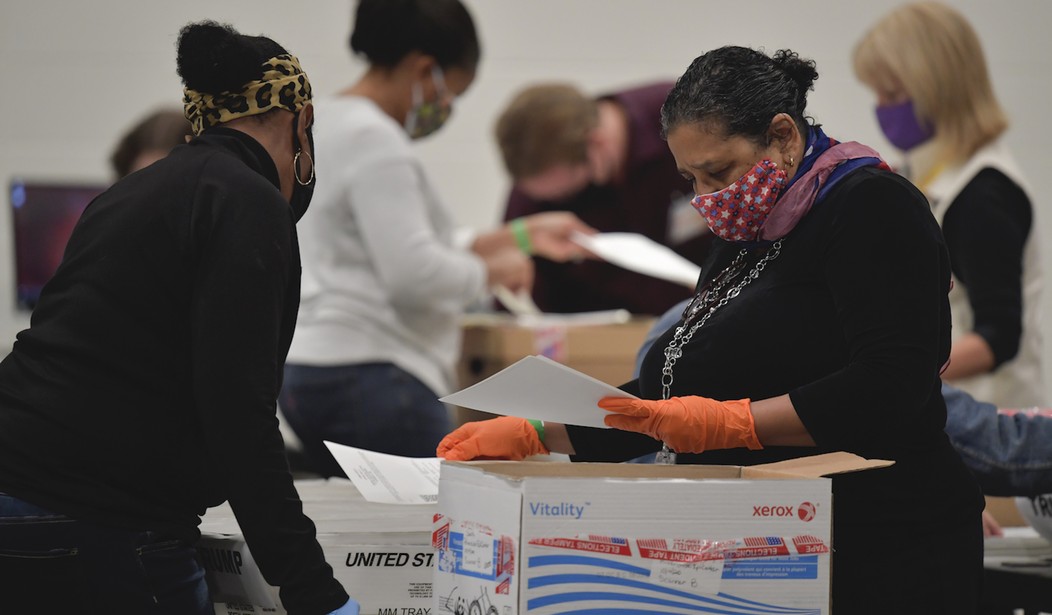The 2020 mess of an election has highlighted the tremendous impact that faulty elections in one state can have on the country as a whole. It’s wasn’t until we were 244 years into it that we realized that our country desperately needs federal election regulation reform.
The truth is that country-wide popular elections are a modern advent. Our country started out with mostly legislative selection of electors. In our nation’s first presidential election, six of the 10 states appointed electors by direct legislative appointment, without holding popular elections. In the second presidential election, nine of the 15 states did the same. In the third, nine of the 16 states did not hold popular elections.
Today, Americans don’t trust their state legislatures with that responsibility. We practice popular vote elections for electors. But with 150 million or so people voting, problems are bound to occur.
States were entrusted with administration of federal elections, but Congress was entrusted with oversight of the same.
The Elections Clause of the Constitution provides Congress with broad authority to regulate congressional elections: “The Times, Places, and Manner of holding Elections for Senators and Representatives, shall be prescribed in each State by the Legislature thereof; but the Congress may at any time by Law make or alter such Regulations, except as to the Places of chusing Senators.” Article II, Section 1, Clause 4, adds: “The Congress may determine the Time of chusing the Electors, and the Day on which they shall give their Votes; which Day shall be the same throughout the United States.”
Recommended
In 1879, the Supreme Court determined that Congress may make election law regulations and may alter them; and, that federal law supersede state law if there is a conflict, “for the power of Congress over the subject is paramount. It may be exercised as and when Congress sees fit to exercise it.”
Exercising their powers, Congress has passed legislation to regulate the timing of federal elections, voter registration requirements, absentee voting requirements, accessibility provisions for the elderly and handicapped, and prohibitions against discriminatory voting practices.
But federal election laws, compared to Congressional legislation in other areas, are lacking.
The lack of standardized regulations and federal statutory constraints of potential fraud in federal elections, coupled with the unprecedented power grab by governors under the guise of “pandemic response,” has created the perfect cover for election impurity.
After the 2020 election, about one half of the country does not believe that the election was pure. According to a Ramussen poll, 47 percent of U.S. voters say that “it’s likely that Democrats stole voters or destroyed pro-Trump ballots in several states to ensure that Joe Biden would win.” That proportion is startling.
“Congress has the constitutional power to pass laws for the free, pure and safe exercise of [the right to vote],” declared the Supreme Court in 1884.
Congress must act. Half of the country believes the 2020 election was determined by impure votes. That’s a problem and one to which Congress holds the key to prevent from recurring. Congress must exercise its right, and its responsibility, to “pass laws for the free, pure and safe exercise” of the right to vote.
New laws must limit the time for casting a vote in the elections. New laws must regulate the types of equipment/voting machines that can be used and what kind of safeguards they must have to preserve the integrity of the votes. New laws must regulate “improper use of money” or dark money interjected to influence our elections — this is a power Congress “undoubtedly” possesses according to the Supreme Court. These are but some of the concerns that plagued the 2020 election. The list is extensive and Congress must address voter concerns accordingly.
As far as the four states at the heart of the 2020 election tumult, we can address our national grievances with them by demanding that Congress attach conditions to federal funds sent to, or even deny funding to, Pennsylvania, Wisconsin, Michigan, and Georgia, until they implement acceptable changes to their election administration. Congressional spending power is a potent tool of persuasion.
Congress is responsible to every eligible American voter, certainly to the 150 million who voted in the 2020 election, to enact laws to preserve the purity of federal elections. This is their job. Their job is not to tweet about free college for all, it’s to protect federal elections. It is our job to make sure our elected representatives do their job.
Going forward, American voters must make election reform a political priority. The Courts aren’t the right avenue, Congress is. Instead of wasting time and money supporting fruitless litigation efforts, we must change course and instead we must focus on pressing our representatives. We must call on every Member of the House and every Senator to pass election law reform. Their historically lackadaisical approach to federal election laws is unacceptable. Attention to this area of the law must be a priority for each and every one of them. If they don’t listen, vote them out vociferously in 2022 and 2024.

























Join the conversation as a VIP Member